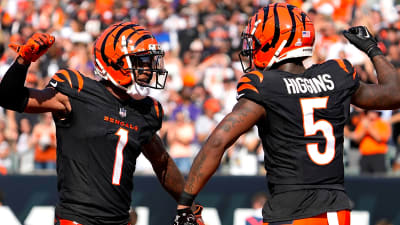Traumatic Brain Injury (TBI) happens to millions of people annually. It can strike anyone, from athletes to someone cooking lunch. Most of these injuries go undiagnosed, due to the invisible nature of the trauma. The i-STAT TBI test, a groundbreaking advancement, is revolutionizing the assessment of brain injuries.
I recently sat down with Dr. Beth McQuiston, a neurologist and registered dietitian at Abbott. She shared her excitement over the transition of the test from plasma to whole blood, the test's potential to reshape TBI management across diverse populations, and how this test can affect sports like MotoAmerica.
The i-STAT TBI test recently transitioned from using plasma to utilizing whole blood to detect traumatic brain injury. The test measures two brain proteins, glial and neuronal markers (at the picogram level), producing results in 15 minutes. All of this is done with a handheld device.
The i-STAT TBI Test is a Game-Changer for Traumatic Brain Injury
“This is the first breakthrough in 50 years for brain injury assessment,” Dr. McQuiston explains. “It’s like measuring the weight of DNA in a hummingbird cell—unprecedented precision.” The test rules out the need for a head CT scan, which will reduce healthcare costs and minimize unnecessary radiation exposure.
The i-STAT TBI test has a negative predictive value exceeding 99% and FDA clearance. Historically, subjective methods were used to diagnose concussions and other forms of traumatic brain injury. This includes asking patients questions to determine lost time or forgetfulness, as well as conducting other simple cognitive tests.
Dr. McQuiston points out the inherent flaws in this method: “Around 90% of head CTs for mild concussions are negative, and at least half of concussions go undiagnosed, even in emergency departments.” The i-STAT TBI test gives medical staff an objective measure by detecting elevated brain proteins in the blood. The results determine if further evaluation is needed.
The test's creation came about from a collaboration between Abbott and the U.S. Department of Defense, as the military sought a portable solution for assessing brain injuries in the field. Dr. McQuiston recalls, “They asked us to measure two brain proteins simultaneously in two drops of blood in 15 minutes on a handheld device—a tall order!”
It took 300 Abbott scientists seven years to make the “impossible possible.” The team overcame technical challenges and skepticism to create the i-STAT TBI test. The device resembles a Star Trek tricorder, and MotoAmerica recently adopted the use of the device for their riders. In MotoAmerica, Rapid TBI assessment can guide critical treatment decisions in real-time at the point of care.
The implications of a test like the i-STAT TBI test are monumental. With test results taking only 15 minutes, certain sports can safely return players to play, knowing that there is essentially no chance of a misdiagnosis. For athletes, this test is a game-changer.
Dr. McQuiston states, “Athletes often want to return to play, but the brain is especially vulnerable in the one to two weeks post-concussion, increasing the risk of further injury.” With a test that produces objective data, the test informs critical medical decision-making. This potentially reduces long-term risks like Chronic Traumatic Encephalopathy (CTE).
The MotoAmerica partnership embodies the test's practical application, producing rapid assessments during multi-day races, and sets the precedent for other sports such as football, hockey, and soccer (futbol).
Although a professional athlete will benefit greatly from the test, Dr. McQuiston stresses that 97% of concussions occur in non-athletes. Slips and falls are the leading cause of concussion and TBI. “Gravity is the biggest culprit,” Dr. McQuiston says, citing examples like falls from ladders and scooters.
This test will streamline emergency room triage, providing peace of mind or prompting further evaluation. This will efficiently enhance care. Women face higher concussion rates in every contact sport compared to men, underscoring the need for an inclusive diagnostic test like the i-STAT TBI test.
The i-STAT TBI test doesn't shut the door on future advancements. Dr. McQuiston says, “Now that we can accurately measure brain biomarkers, we can explore treatments and prevention strategies.” She goes on to say that nutrition optimization, such as incorporating fermented foods, vitamin D, and omega-3-rich salmon, plays a key role in supporting brain health.
Ongoing trials aim to extend the test's reach to minors, addressing the needs of high school athletes and younger populations.
The development of the test was no small feat. Dr. McQuiston, “No one thought it was possible to measure brain proteins at this level in blood.” The project faced setbacks during the COVID-19 pandemic, but powered forward. The test is a triumph of collaboration, with over 65 patents applied for or granted for the technology.
Guidelines, published in The Lancet on May 20, 2025, further endorse the use of FDA-cleared biomarkers for TBI assessment, signaling global acceptance.
Dr. McQuiston's personal experiences drive her passion for TBI technological advancements. In medical school, she encountered a young man whose seizures resulted from a series of missed concussions. She says, “Those stories stay with you.”
This test will prevent similar situations from happening again for athletes, veterans, and even everyday people. She advocates for broader concussion awareness, saying that people who wish to learn more about symptoms of TBI can go to concussionawarenessnow.org.
The i-STAT TBI test isn't just a diagnostic tool. It serves as a catalyst for proactive brain health, improved emergency care, and safer sports practices moving forward. Dr. McQuiston urges, “Wear helmets, whether on a motorcycle or an e-scooter, and optimize your brain health with sleep, nutrition, and regular check-ups.”
As the technology evolves, it will transform how we understand and manage TBIs, giving us a glimpse of a future where no concussion goes undiagnosed.
More must-reads:
- Five worst signings from the first day of NHL free agency
- Guardians pitcher target of sports betting investigation
- The 'Leading scorer by NBA franchise' quiz
Breaking News
Trending News
Customize Your Newsletter
 +
+
Get the latest news and rumors, customized to your favorite sports and teams. Emailed daily. Always free!








